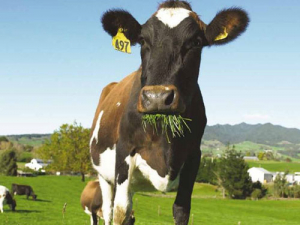NZ scientists make breakthrough in Facial Eczema research
A significant breakthrough in understanding facial eczema (FE) in livestock brings New Zealand closer to reducing the disease’s devastating impact on farmers, animals, and rural communities.
 Grasses being developed by AgResearch scientists are expected to result in healthier animals, better production on the farm and less impact on the environment.
Grasses being developed by AgResearch scientists are expected to result in healthier animals, better production on the farm and less impact on the environment.
Grasses being developed by AgResearch scientists are expected to result in healthier animals, better production on the farm and less impact on the environment.
Dr Tony Conner, the Forage Science Group Leader at AgResearch and one of New Zealand’s leading plant scientists, spoke today about the cutting edge research into enhanced ryegrass at the annual NZ Grassland Association (NZGA) conference in Timaru.
A recent grant from the Ministry of Business, Innovation and Employment’s Endeavour Fund, along with funding from AgResearch and other stakeholders, means an investment of $25 million over five years into the genetically modified forages research.
“What we are doing is enhancing the ryegrass so that there is more energy and nutrition stored in the grass,” Conner says.
“This means the animals feeding on it are healthier, and therefore they become better producers for the farm. The result will be a major boost for the agricultural economy.”
“What we are also finding is that a by-product of these changes to the grass will be important gains as far as the impacts on the environment. This includes less methane gas produced by the animals, and the change in nitrogen requirements with these grasses could reduce nitrate runoff.”
Conner says the NZGA conference is timely given the important work that AgResearch and other organisations are doing in the area of forage science, and the gains being made in this sector. He says there is much benefit for New Zealand in building upon the DairyNZ Forage Value Index and the future vision of the emerging Pastoral Industry Forage Strategy.
“We are mindful of the need to continue strong working relationships in this sector, including the scientists and its many stakeholders, so that our advances are relevant to industry. The NZGA conference provides a key opportunity.”
The conference runs until Friday.
A New Zealand dairy industry leader believes the free trade deal announced with India delivers wins for the sector.
The Coalition Government will need the support of at least one opposition party to ratify the free trade deal with India.
Primary sector leaders have welcomed the announcement of a Free Trade Agreement between India and New Zealand.
At Pāmu’s Kepler Farm in Manapouri, mating has wrapped up at the across-breed Beef Progeny Test.
More than 150 people turned up at Parliament recently to celebrate the 20th anniversary of Horticulture New Zealand (HortNZ).
Biosecurity New Zealand says Kiwis should continue to keep an eye out for yellow-legged hornets (Vespa velutina) over the holiday season.